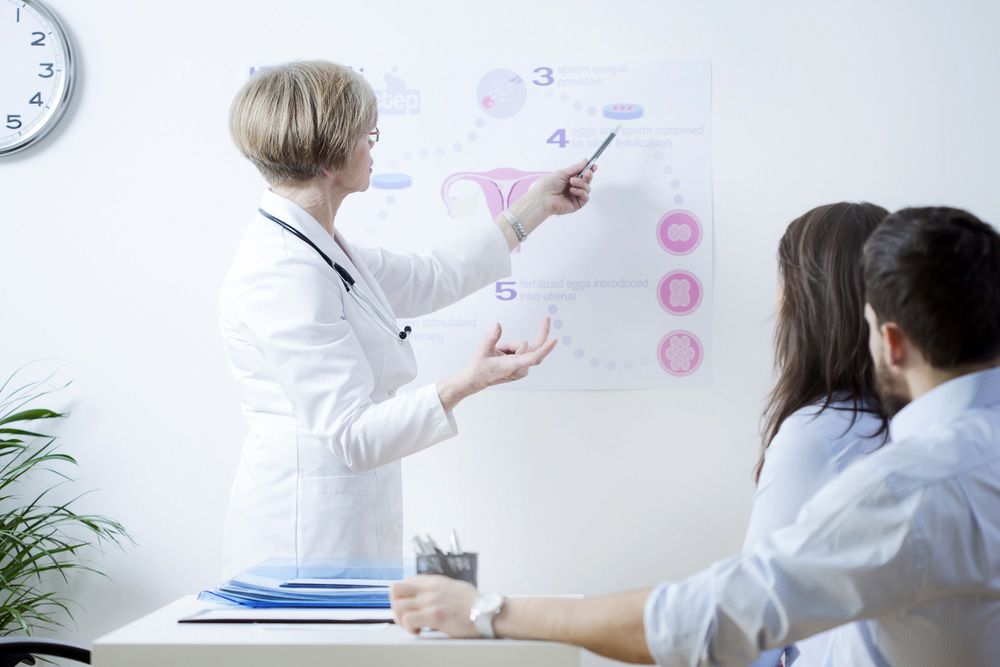Fertility Testing for Women
 Most people do not get pregnant as quickly as they expect, often facing months of negative pregnancy tests. While this can be sad and frustrating, it doesn't always mean something is wrong. Typically, it is not until a person has been unsuccessful at conceiving for 12 months that fertility testing is recommended.
Most people do not get pregnant as quickly as they expect, often facing months of negative pregnancy tests. While this can be sad and frustrating, it doesn't always mean something is wrong. Typically, it is not until a person has been unsuccessful at conceiving for 12 months that fertility testing is recommended.
The fertility doctors at Los Angeles Reproductive Center offer comprehensive fertility testing to diagnose potential fertility concerns. We offer testing to men and women in Encino, CA, Bakersfield, CA, Los Angeles, CA, and surrounding areas. Here, we go over fertility testing for women that may be performed to identify issues that could be limiting female fertility.
General Physical
Prior to ordering fertility testing, patients undergo a general physical. A physical gives us a better understanding of the patient’s overall health, and alerts us to any potential areas of concern. Along with a general physical, we will discuss the patient’s medical history.
When considering possible female fertility issues, we need to understand the patient’s menstrual cycle. Our fertility specialists will ask questions about when the patient started menstruating, the regularity of her cycle, and any symptoms experienced during her cycle.
With the information obtained from the physical and discussions regarding the patient’s medical history, we can determine the types of fertility tests that will give us the greatest insight into the patient’s fertile health.
Egg Testing
When evaluating female fertility, we want to know more about the woman’s ovarian reserve. Ovarian reserve testing allows us to determine the quantity of eggs a woman has remaining, as well as the quality of the eggs in her reserve. To evaluate the ovarian reserve, we may perform blood tests as well as an antral follicle count.
- Blood tests: We perform blood tests to measure the levels of hormones that are vital to female fertility, such as follicle stimulating hormone (FSH), estradiol (E2), anti mulerian hormone (AMH), and inhibin.
- Antral follicle count: To perform an antral follicle count, or AFC, we perform a transvaginal ultrasound. Via the ultrasound, we are able to count the number of follicles remaining in each ovary.
Uterus and Fallopian Tube Testing
For conception to be a success, the fallopian tubes must be open and the uterus must be free of any abnormalities that would create a hostile environment. There are several different tests that may be performed to evaluate the uterus and fallopian tubes.
- Hysterosalpingogram (HSG): An HSG is an x-ray procedure that uses injected dye to highlight the path through the fallopian tubes and along the lining of the uterus. This test let's our fertility specialists determine if the fallopian tubes are open, and if the lining of the uterus is smooth.
- Hydrosonogram: During a hydrosonogram we inject sterile water into the uterus and perform a sonogram. This allows us to evaluate the lining of the uterus to check for abnormalities.
- Hysteroscopy: A hysteroscopy is a minor surgical procedure. During this test, a small camera is inserted into the uterus to evaluate the endometrial lining. If necessary, minor repairs can be made during this procedure.
Schedule an Evaluation
At the Los Angeles Reproductive Center, we offer a comprehensive range of fertility testing that allows us to customize fertility treatment for our patients. If you are interested in scheduling a fertility evaluation, you can start the process by sending us a message online or calling us at (818) 946-8051.




